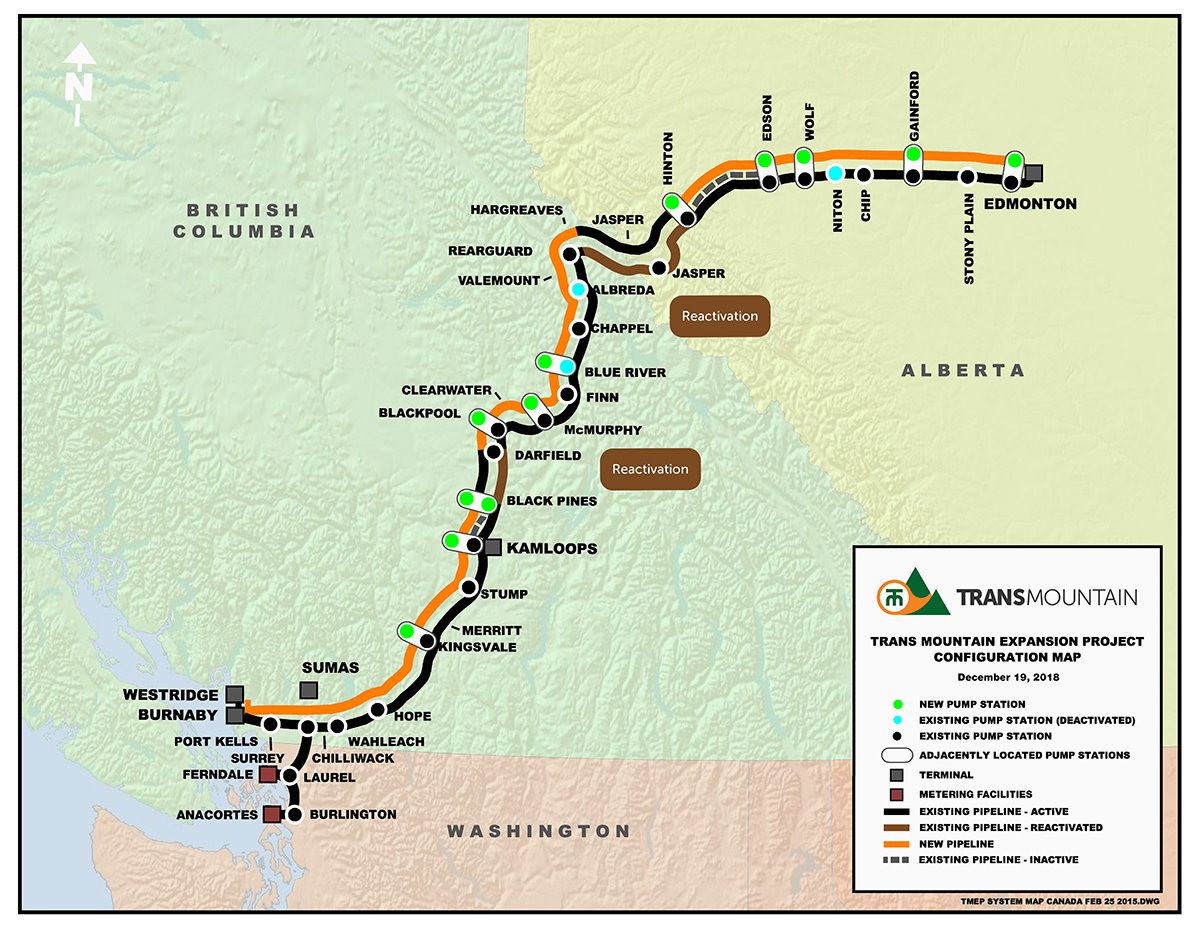The Trans Mountain Pipeline in Canada has faced its share of challenges, and the economic costs associated with it are just the tip of the iceberg. The Canadian government has been speaking with indigenous groups about their economic participation in the project at some point. In the meantime, costs associated with the Trans Mountain Pipeline have increased dramatically.
Q4 2019 hedge fund letters, conferences and more
Trans Mountain Pipeline costs rise 70%
The expansion of the Trans Mountain Pipeline is now expected to cost $12.6 billion and be finished in 2022. The cost of the project was previously estimated at $7.4 billion. Nearly $2.5 billion has been spent on the pipeline expansion so far, including costs associated with delays and other regulatory processes.
The new price tag for the Trans Mountain Pipeline includes $8.4 billion in construction costs and another $1.7 billion in financial carrying costs. The company also recommended that $600 million be placed in a contingency fund to cover "cost impacts beyond the control of Trans Mountain."
Trans Mountain President and CEO Ian Anderson said earlier this month that the pipeline is now "a different project" than it was when they originally estimated the costs associated with it. The original price tag was developed while Kinder Morgan still owned it in 2017. He also said that no matter who owned the title to the Trans Mountain Pipeline, the final cost would still be the same.
These are the new costs for the Trans Mountain Pipeline
He attributed the increase in the costs to the starting and stopping of construction and delays in the project. He also said the carrying cost and additional legal and regulatory expenses are adding to the project's expense.
The other big factor in the higher cost has been the large number of changes and enhancements made to the project, he added. He also cited the changed market conditions, compared to what they were like when the project was initially planned in 2017.
Trans Mountain also said the added costs include fiber optic cable that must be installed along the pipeline to detect spills. The installation of the cable is estimated at $70 million.
With the significant increase in the cost of the pipeline, some are now wondering how the economics will work out for the Canadian government when it comes time to sell it. However, Anderson told news outlets that the economics are in their favor. He expects sizable cash flow soon after the activation of the pipeline. He projects first-year gross earnings from the pipeline at more than $1.5 billion and expects those earnings to increase every year.
Finance Minister Bill Morneau also said the project now adds costs associated with significant upgrades for safety and environmental protections, according to Global News.
Talks with indigenous groups for economic participation
Last month, the United Nations ordered Canada to stop building the Trans Mountain Pipeline until the Secwepemc people give their consent for the project. They are just one of many indigenous groups affected by the pipeline.
More and more of these groups have signed deals to buy into the expansion of the pipeline. Anderson said earlier this month that they have signed agreements with 58 indigenous groups, up from 43 in 2017. The deals that have been signed so far are worth approximately $500 million.
After the announcement about the higher costs associated with the pipeline, Canadian officials began a fresh round of consultations with indigenous groups about the project. According to Global News, authorities plan to consult up to 129 different communities to discuss their opportunity for "meaningful economic participation" in the project.
Morneau said the latest round of talks with indigenous groups is focused on various "models of economic participation." Some of these models include equity-based models and revenue-sharing options.
The goal of the consultations will be moving toward a "widely acceptable option" for the indigenous groups. He also said they will be looking into whether the communities that participate in the project are willing to work together.
Several indigenous groups have said they are interested in purchasing a stake in the Trans Mountain Pipeline, although there is no information yet on when the Canadian government plans to sell it.
Will Brookfield buy the Trans Mountain Pipeline?
Although a sale of the pipeline is still probably years away, some are already discussing potential buyers. According to Bloomberg (via the Financial Post), Stifel FirstEnergy analyst Ian Gillies said asset management firm Brookfield Infrastructure Partners could be interested.
He called Brookfield a "dark horse" buyer following the sizable equity raise it recently completed. Parent company Brookfield Asset Management raised US$20 billion in equity for its global infrastructure fund. It also committed US$5 billion in capital to the fund.
Gillies also said the company has "excellent access to capital markets." Brookfield bought NorthRiver Midstream in 2018 in demonstration of its interest in running energy infrastructure projects.
Other potential buyers
Other potential buyers for the Trans Mountain Pipeline could include pension funds and private equity funds, according to Gillies. However, pension funds may face headwinds related to ESG trends since the pipeline moves crude oil from the oilsands in Canada.
He also suggested that a number of indigenous groups will pursue Trans Mountain. Another potential buyer could be Pembina Pipeline Corp. Two companies that might not be interested are TC Energy Corp. and Enbridge. He said both companies might not be looking for massive deals and might need equity financing to pull off the transaction.






